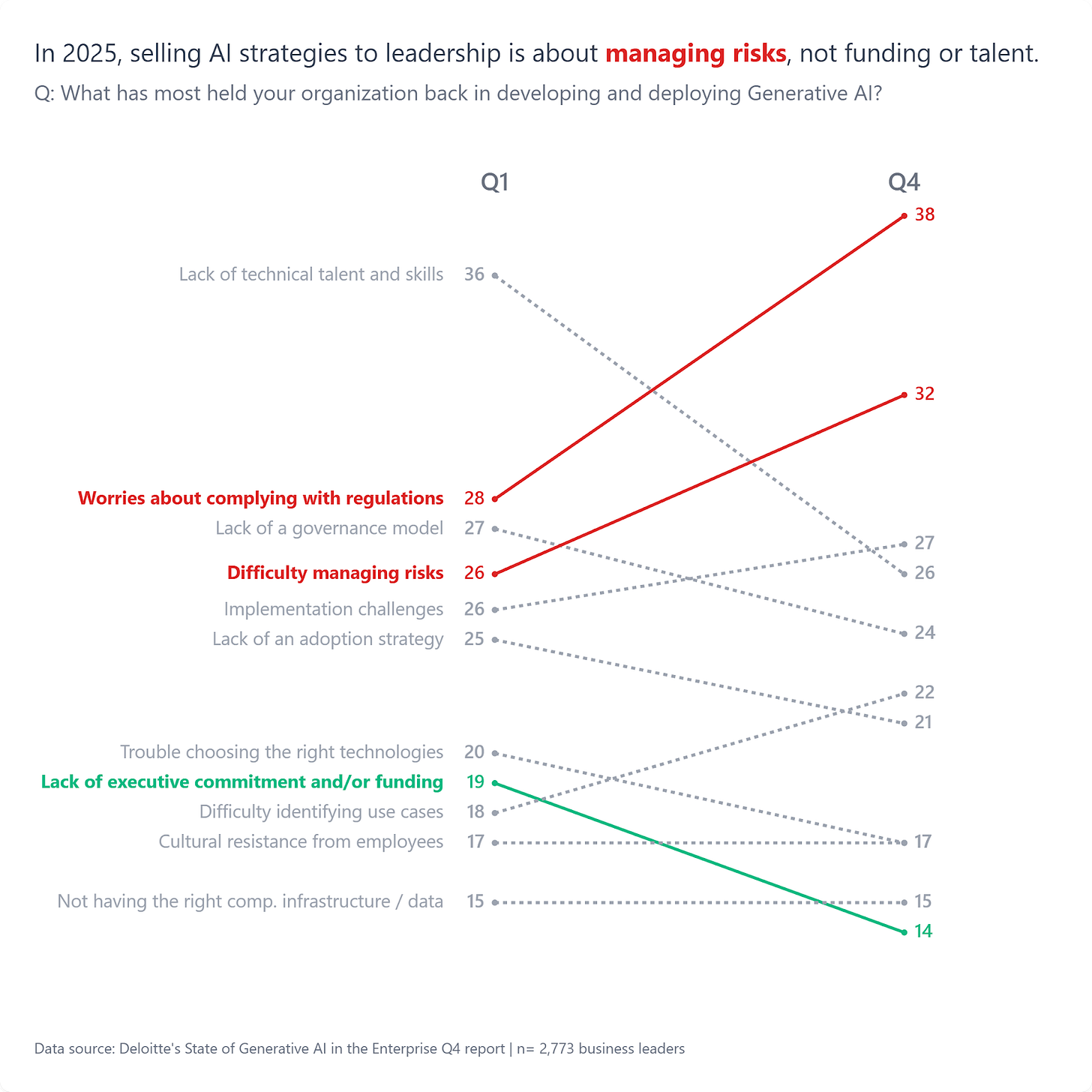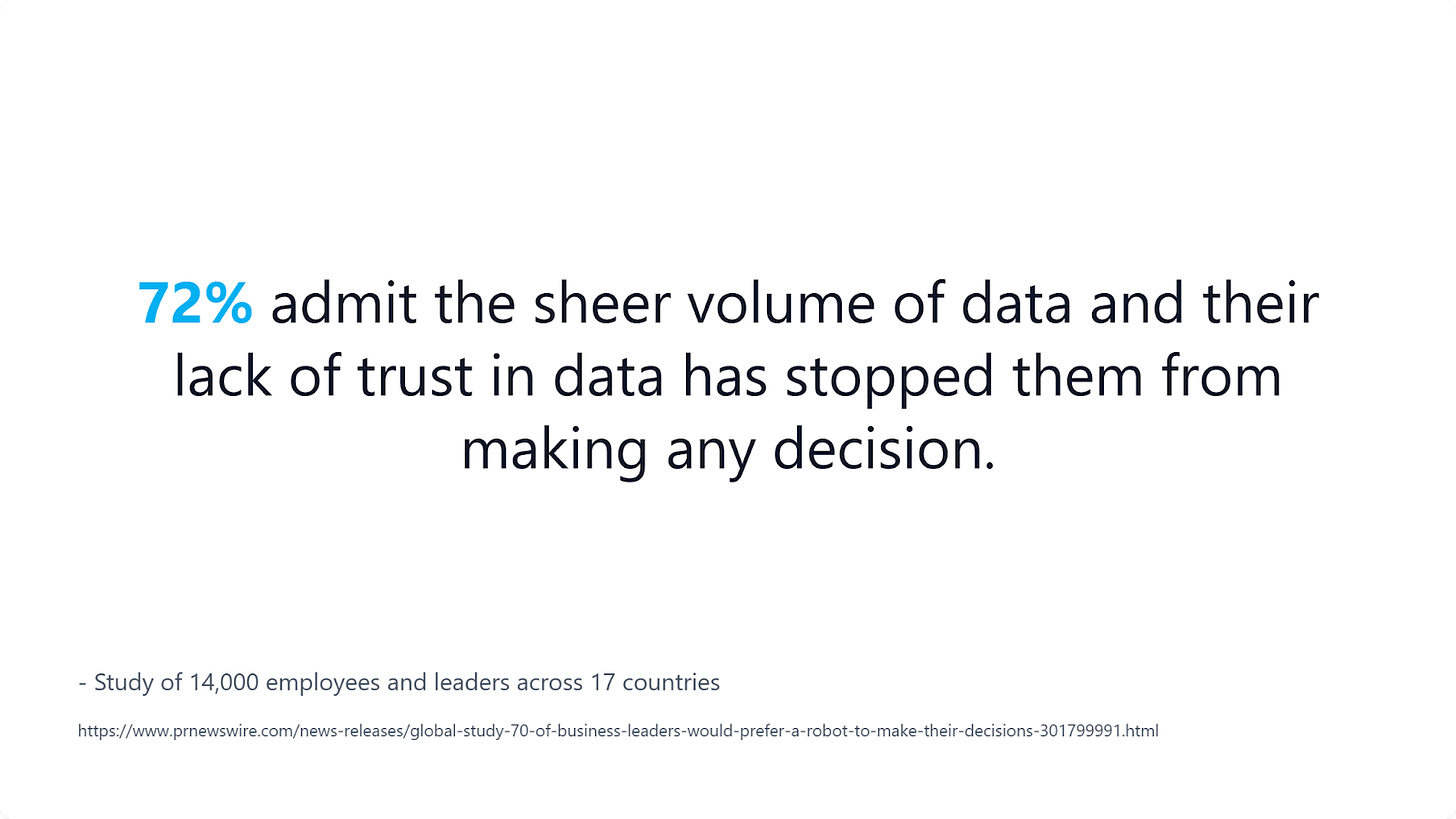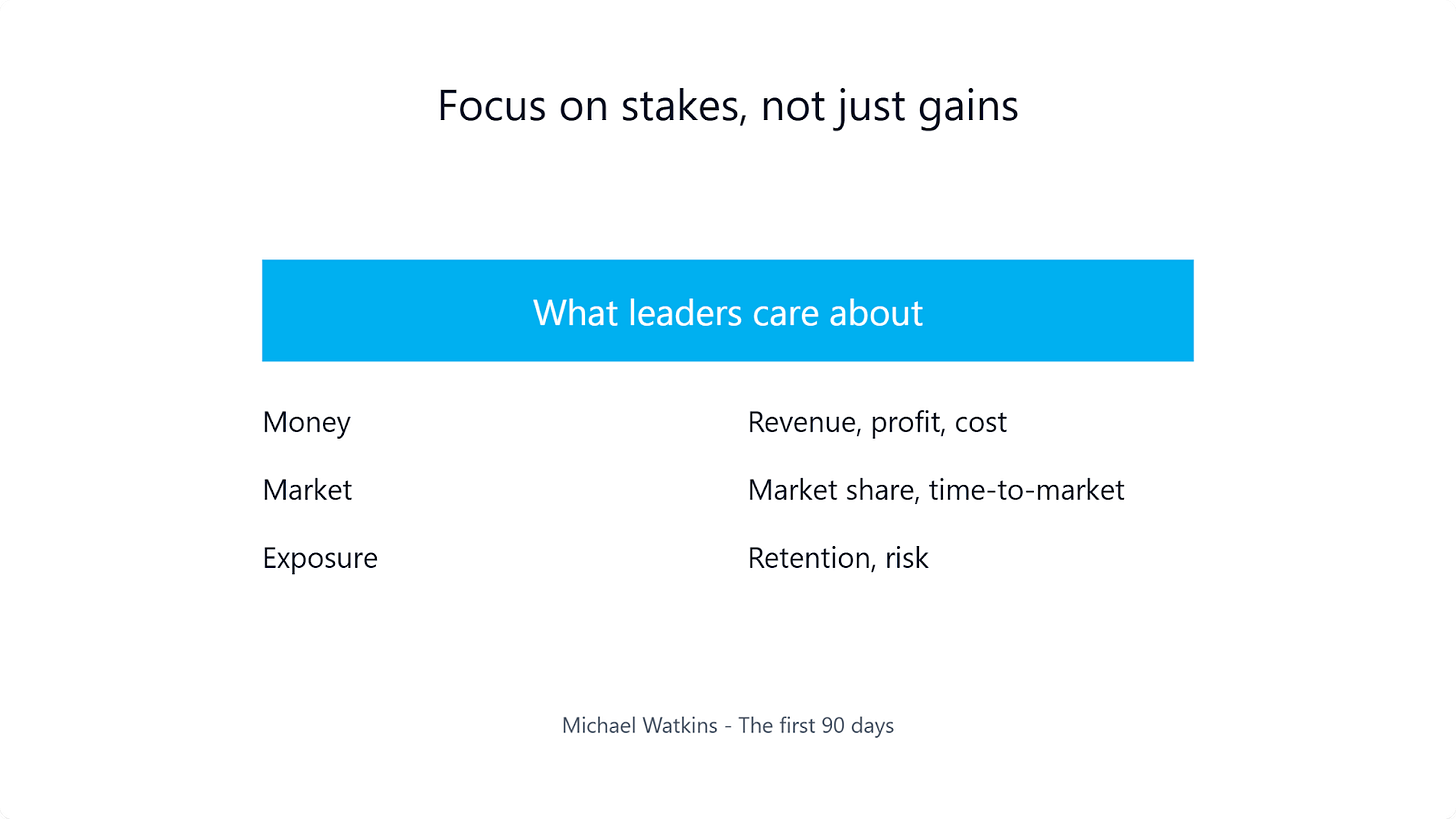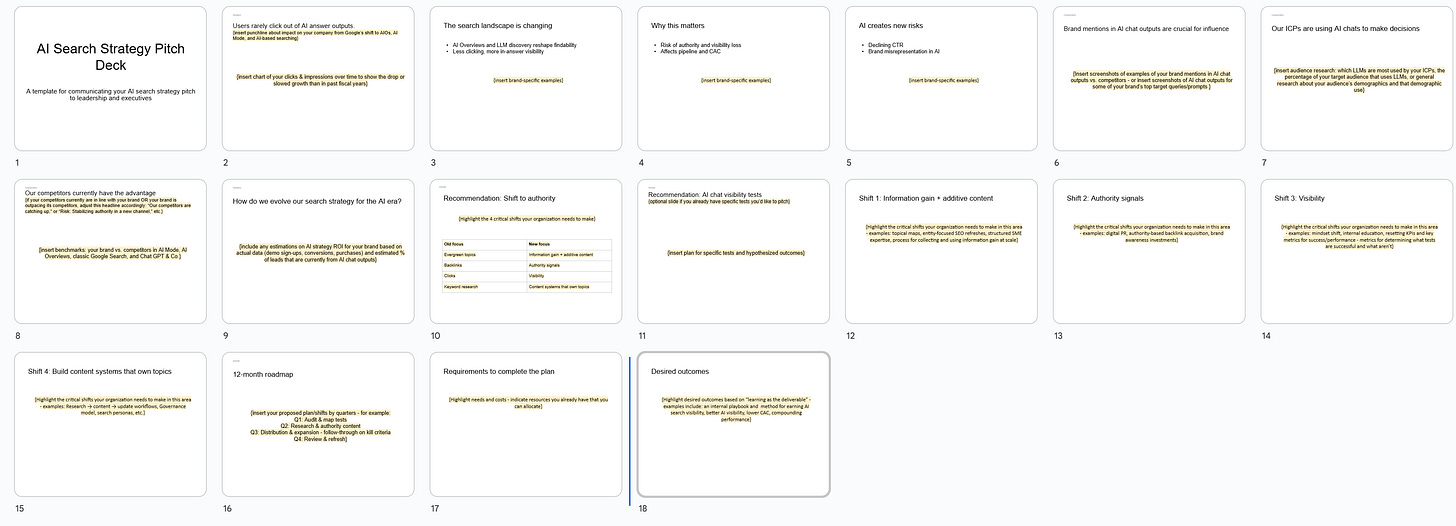Selling AI search strategies to leadership is about risk
In AI search, you cannot sell certainty. You can only sell controlled learning.
This Memo was sent to 22,515 subscribers. Welcome to +164 new readers!
You’re reading the free version of Growth Memo. This week, premium subscribers get a set of critical reframes for your AI strategy executive pitches—plus a complete pitch-deck template for selling your AI search strategy.
100 AI Prompts For Any Marketing Challenge
HubSpot pioneered Inbound Marketing, and now it is introducing the next breakthrough for the AI era: Loop Marketing. Grab the 100 prompt Loop Marketing Library, engineered and field tested to tackle any marketing challenge.
The old marketing playbook is played out. Search behavior is shifting, AI is answering questions directly, and audiences are scattered across platforms like TikTok, YouTube, Reddit, and podcasts.
Loop Marketing equips you to thrive in this new era with a continuous cycle where humans and AI collaborate. Inside the prompt library you will find frameworks for brand voice differentiation, account based personalization, audio strategy, accelerated experimentation, and more, all aligned to the Loop Marketing framework.
AI search visibility isn’t “too risky” to invest in for executives to buy-in. Selling AI search strategies to leadership is about risk.
A Deloitte survey of +2,700 leaders reveals that getting buy-in for an AI search strategy isn’t about innovation, but risk.
SEO teams keep failing to sell AI search strategies for one reason: They’re pitching deterministic ROI in a probabilistic environment.
The old way: Rankings → traffic → revenue. But that event chain doesn’t exist in AI systems.
LLMs don’t rank. They synthesize. And Google’s AI Overviews and AI Mode don’t “send traffic.” They answer.
Yet most teams still walk into a leadership meeting with a deck built on a decaying model. Then, executives say no - not because AI search “doesn’t work,” but because the pitch asks them to fund an outcome nobody can guarantee.
In AI search, you cannot sell certainty. You can only sell controlled learning.
1/ You can’t sell AI search with a deterministic ROI model.
Everyone keeps asking the wrong question: “How do I prove my AI search strategy will work so leadership will fund it?” You can’t; there’s no traffic chain you can model. Randomness is baked directly into the outputs.
You’re forcing leadership to evaluate your AI search strategy with a framework that’s already decaying. Confusion about AI search vs. traditional SEO metrics and forecasting is blocking you from buy-in. When SEO teams try to sell an AI search strategy to leadership, they often encounter several structural problems:
Lack of clear attribution and ROI: Where you see opportunity, leadership sees vague outcomes and deprioritizes investment. Traffic and conversions from AI Overviews, ChatGPT, or Perplexity are hard to track.
Misalignment with core business metrics: It’s harder to tie results to revenue, CAC, or pipeline - especially in B2B.
AI search feels too experimental: Early investments feel like bets, not strategy. Leadership may see this as a distraction from “real” SEO or growth work.
No owned surfaces to leverage: Many brands aren’t mentioned in AI answers at all. SEO teams are selling a strategy that has no current baseline.
Confusion between SEO and AI search strategy: Leadership doesn’t understand the distinction between optimizing for classic Google Search vs. LLMs vs. AI Overviews. Clear differentiation is needed to secure a new budget and attention.
Lack of content or technical readiness: The site lacks the structured content, brand authority, or documentation to appear in AI-generated results.
2/ Pitch AI search strategy as risk mitigation, not opportunity.
Executives don’t buy performance in ambiguous environments. They buy decision quality. And the decision they need you to make is simple: Should your brand invest in AI-driven discovery before competitors lock in the advantage - or not?
AI search is still an ambiguous environment. That’s why your winning strategy pitch should be structured for fast, disciplined learning with pre-set kill criteria instead of forecasting traffic → revenue. Traditionally, SEO teams pitch outcomes (traffic, conversions) but leadership needs to buy learning infrastructure (testing systems, measurement frameworks, kill criteria) for AI search.
Leadership thinks you’re asking for “more SEO budget” when you’re actually asking them to buy an option on a new distribution channel.
Everyone treats the pitch as “convince them it will work” when it should be “convince them the cost of not knowing is higher than the cost of finding out.” Executives don’t need certainty about impact - they need certainty that you’ll produce a decision with their money.
Making stakes crystal clear:
Your Point of View + Consequences = Stakes. Leaders need to know what happens if they don’t act.
The cost of passing on an AI search strategy can be simple and brutal:
1/ Competitors who invest early in AI search visibility will build entity authority and brand presence.
2/ Organic traffic stagnates and will drop over time while cost-per-click rises.
3/ AI Overviews and AI Mode outputs will replace queries your brand used to win in Google.
4/ Your influence on the next discovery channel will be decided without you.
AI search strategy builds brand authority, third-party mentions, entity relationships, content depth, pattern recognition, and trust signals in LLMs. These signals compound. They also freeze into the training data of future models.
If you aren’t shaping that footprint now, the model will rely on whatever scraps already exist based on whatever your competitors are feeding it.
3/ Sell controlled experiments - small, reversible, and time-boxed.
You’re asking for resources to discover the truth before the market makes the decision for you. This approach collapses resistance because it removes the fear of sunk cost and turns ambiguity into manageable, reversible steps.
A winning AI search strategy proposal sounds like:
“We’ll run x tests over 12 months.”
“Budget: ≤0.3% of marketing spend.”
“Three stage gates with Go/No-Go decisions.”
“Scenario ranges instead of false-precision forecasts.”
“We stop if leading indicators don’t move by Q3.”
45% of executives rely more on instinct than facts. Balance your data with a compelling narrative - focus on outcomes and stakes, not technical details.
I covered how to build a pitch deck and strategic narrative in how to explain the value of SEO to executives, but focus on selling learning as a deliverable under the current AI search landscape.
When presenting to leaders, they focus on 3 things only: money (revenue, profit, cost), market (market share, time-to-market), and exposure (retention, risk). Structure every pitch around these.
The SCQA framework (Minto Pyramid) guides you:
Situation: Set the context
Complication: Explain the problem
Question: What should we do?
Answer: Your recommendation
This is the McKinsey approach - and executives expect it.
4/ How to reframe the deck when impact is uncertain
Below, premium subscribers get a slide deck template, additional pitch tips, and crucial reframes to troubleshoot the stickiest parts of these strategy proposal conversations.
To successfully sell an AI search strategy to leadership, you should reframe your pitch around business priorities, strategic positioning, and learning deliverables. Here’s how:
Structure your pitch deck for leadership buy-in. You can use this template I created to guide you through the process.











